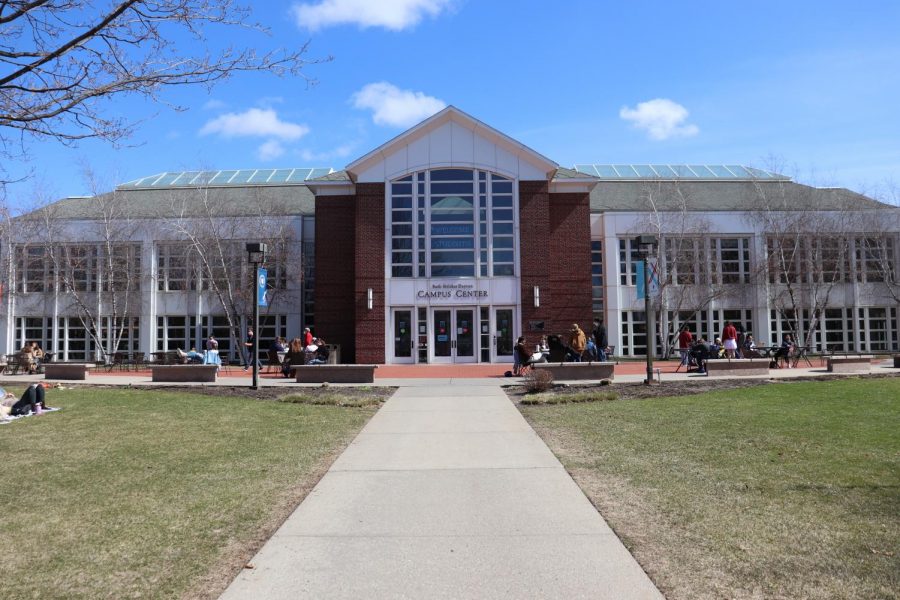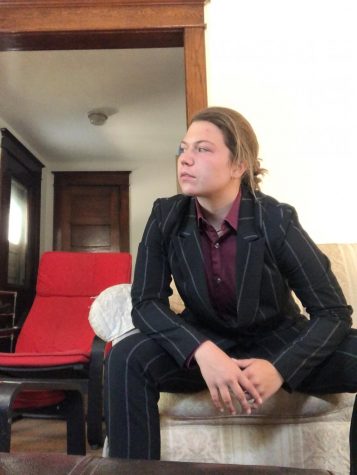Mac goes mask optional
March 31, 2022
On Tuesday, March 29, Director of COVID-19 Operations Paul Overvoorde emailed students, faculty and staff announcing that Macalester will move to a mask optional policy starting April 4. Masks will be optional in most indoor and outdoor settings. In a list of exceptions, Overvoorde noted that masks will continue to be “expected” in all classrooms, labs and studios as well as in medical spaces like the Laurie Hamre Center for Health and Wellness and Athletics training rooms.
The change in masking policy comes after the return to campus testing found 12 COVID-19 cases among the student body, and as the new Omicron subvariant BA.2 drives a casewave in Europe. As of March 25, there are 20 students in isolation both on and off campus. Overvoorde acknowledged these considerations in his email. He added that in the past 90 days, 342 Macalester students have tested positive for COVID-19 — including the 34 students who tested positive prior to spring break, a cluster due to “social gatherings.”
“As we’ve admitted since the start of the pandemic, none of us has a view into the future and we remain open to making adjustments as needed,” Overvoorde wrote in an email to The Mac Weekly. “The downward trend in cases nationally, in Minnesota, and on campus combined with the shift … towards warmer weather, more activities moving outdoors, and the return of the tents and tables provide reasons for cautious optimism.”
Student reactions were mixed with concerns about large spaces on campus where masks would no longer be expected such as the Ruth Stricker Dayton Campus Center, Smail Gallery in Olin-Rice and the DeWitt Wallace Library.
“Smail, the library and the CC are the three places where it’s kind of iffy,” Elena Stanley ’22 said. “You’re in the library for such a long period of time, and I just don’t feel comfortable being maskless like that anymore … We might as well just stay safe for this final leg of the school year, and then they can make changes for next year.”
In his email, Overvoorde described conversations with the Macalester College Student Government (MCSG), Faculty Advisory Committee and Staff Advisory Committee. MCSG President Shreya Nagdev ’22 told The Mac Weekly that Overvoorde only spoke with her; the rest of MCSG was not consulted in this conversation. The last time Overvoorde met with MCSG was on February 8; they did not discuss changing the mask mandate.
“Paul had emailed me before spring break asking to meet, and we discussed how students might feel if mask requirements were lifted,” Nagdev wrote in an email to The Mac Weekly. “I had said that I think many students would be uncomfortable with us moving straight to no masks and recommended that if we were to remove mask requirements then we should stagger it.”
Staggering a changing mask policy, according to Nagdev, would begin by removing the “high quality mask” expectation Macalester has been operating under since the beginning of the spring semester. The campus would return to the mask expectations from last fall which asked students to wear a face covering in all public spaces. If community spread continued to be low, then the school could move to a mask optional policy.
Nagdev added that she told Overvoorde to work with the Laurie Hamre Center for Health and Wellness to access the COVID-19 medications from Pfizer and Merck for high risk students.
“For the COVID drug situation, I recommended that the Hamre Center would be able to intimately assist students in receiving the medication rather than figuring it out themselves,” Nagdev wrote.
Overvoorde added that there are a range of treatment options available for those who are medically vulnerable in the Twin Cities, and Hamre Center staff can discuss these options with students on a case-by-case basis. There are also on-campus testing resources to help students get a rapid diagnosis.
Over the past year and a half, students have been able to order free at-home testing kits from Vault Health, a virtual healthcare platform. On Tuesday, the Minnesota Department of Health (MDH) announced the program would end on March 31. MDH launched an at-home rapid antigen test program on March 29 through which all houses can order four rapid tests.
Overvoorde said it is unclear how higher education institutions using the Vault programs will be affected. Although the recent return-to-campus testing was not conducted through the MDH at-home testing program, many students, staff and faculty have used the program on their own. Anyone wanting to use Vault testing on their own now would need to pay for a test.
“The state only recently announced the phase-out of this at-home program and the impact on institutions of higher education (IHEs) has not been clarified,” Overvoorde wrote. “The federal and state programs to distribute rapid antigen test kits are additional resources and for those who need a PCR test, these remain available through the Hamre Center and the community testing sites in the Twin Cities.”
Last year, Macalester provided surveillance testing for the campus community. This year, however, the school stopped providing that type of testing. Students can still sign up for tests on-campus.
“I want COVID testing to come back on campus because it’s really accessible, especially for people like myself who don’t have a car or for people who live on campus,” Stanley said.
More broadly, Stanley said she sees changes in student behavior around COVID this year. When coupled with the higher Macalester case counts, she feels more concerned about relaxing the campus masking requirements.
“It feels scary that so many people have gotten COVID,” she said. “Also, the fact that they were like, ‘well, we’ve had like almost 400 people get COVID in the last 90 days’… it’s just a little concerning that this has actually been an increasing number, and there are so many people in the COVID house.”














